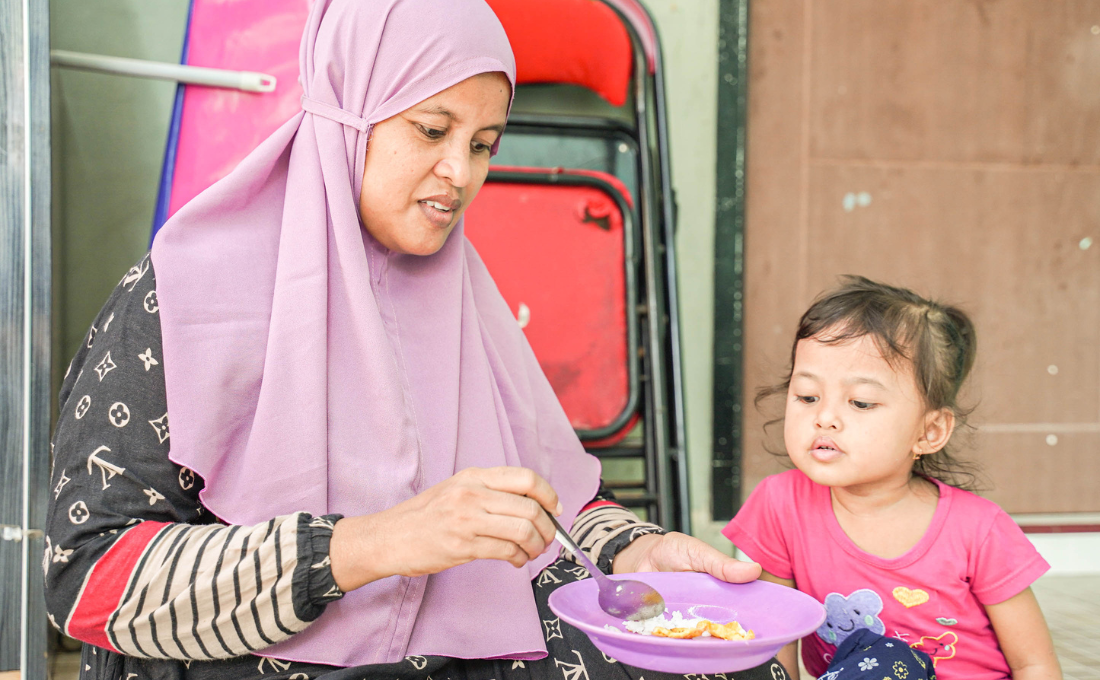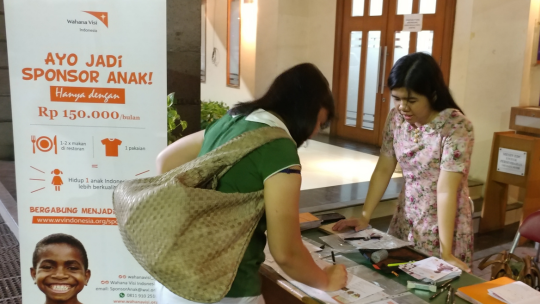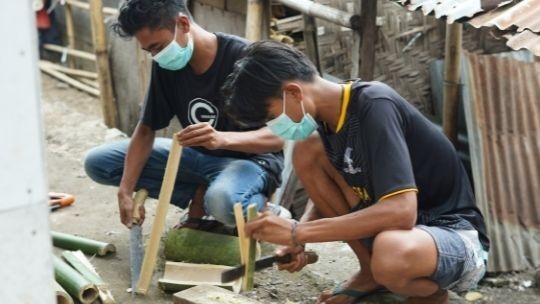Child Nutrition Rehabilitation Must Start at Home

From birth to three years of age, children experience rapid growth and development. Children who are undernourished during this stage of life will not develop optimally. Malnutrition in early childhood will affect a child's physical, mental, and emotional capacity throughout their lives.
To support the government's program to accelerate the reduction of stunting, Wahana Visi Indonesia (WVI) is implementing various nutrition programs targeting children aged 0-5 years (U5 children). One of the programs currently being run by WVI is the Nutrition Post with the Positive Deviance Hearth (PD Hearth) approach or positive deviation.
The PD Hearth Nutrition Post is a community-based model that has been proven internationally to rehabilitate underweight children in their own homes. The target is children with mild underweight, moderate underweight, and severe underweight between the ages of six and 36 months.
'Positive deviation', means to be different in a positive way from what is usually done. This positive deviation refers to the place in the home where food is cooked and served, and where childcare is provided. Despite limited resources, and even shortages, some parents find ways to raise well-nourished children. The principle of this approach is to identify and understand what differences are made by these 'positive deviant families', whether in feeding practices, hygiene, parenting, and/or other practices, from the parents or caregivers of underweight children in the same community.
Trained volunteers from the PD Hearth Nutrition Post who have identified and found these 'positive deviations' will share this knowledge and positive practices with the parents or caregivers of underweight children in practical lessons called Nutrition Post Sessions.
In addition, two menus are designed for the Nutrition Post sessions. Each menu consists of food that is locally available, easily accessible, affordable, and nutrient-dense. Parents or caregivers of the participating children in the Nutrition Post contribute by bringing raw food ingredients to the Nutrition Post session. At each session, Nutrition Post volunteers teach parents and caregivers to prepare and cook the ingredients they bring into nutritious supplementary food to give to their children immediately after the cooking process is complete. Children are required to finish the food that is served.
The Nutrition Post lasts for 10-12 days, and is followed by monitoring for two weeks through home visits by volunteers. The purpose of these home visits is not only to encourage caregivers to continue positive practices and serve nutritious meals at home, but also to help overcome any obstacles that caregivers may face in trying to practice positive parenting at home. After this process is underway, weight monitoring of the children will be conducted on days 30, 60, and 90.
Author: Arzelia Y. Lienando (Health Manager)
Editor: Mariana Kurniawati (Communication Executive)




